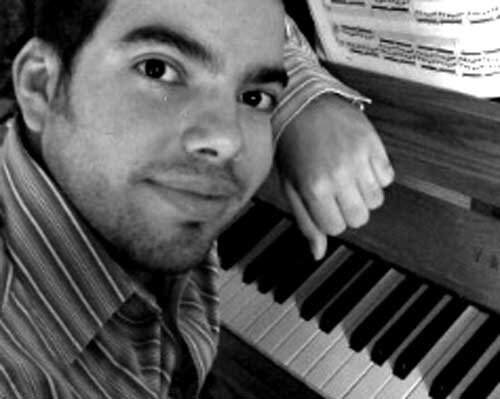February Newsletter
Teacher Spotlight
February 2020
The News are continuing to feature one of the Do-Re-Mi students or teachers.
Olessia Apert
Ms. Olessia started working at the Do-Re-Mi three years ago, soon after enrolling her children to the school. A professional Russian language teacher, she is additionally certified as a Russian as a Foreign Language and Montessori teacher.
However, her most significant "certificate" is her three trilingual daughters.
While teaching RSL and RFL, Olessia started developing her own “hands-on” materials and already got her audience as a contributing author for a new children's Russian magazine "Cat in a Bag" - "Кот в Мешке" and her buyers at https://www.teacherspayteachers.com/.
She has taught various classes at the Do-Re-Mi: Russian, RSL, Language Development, Russian Through Music for Toddlers, Russian Theater, bringing her creativity and resourcefulness into all programs she has taught.
Olessia is a curious person, non-stop learner. Additionally to various professional programs, she is a Do-Re-Mi student: she’s learning piano (and recently performed in the studio recital) and is an actor in our Advance Theater cast.
MUSIC LESSONS FOR ADULTS AND FOR SENIORS – WHY IT’S ALWAYS A GOOD IDEA TO PLAY MUSIC
More and more adults and seniors choose to learn a musical instrument. And they should because more and more research shows that playing a musical instrument can slow and sometimes even reverse the effects of aging – especially for hearing and memory.
It is well known that music lessons give students learning advantages in school. Now, more recent research shows that music lessons have just as positive an effect on seniors and can offset some of the negative effects of growing older.
For seniors, as well as adults, music lessons can thus act as preventive health care on many levels – cognitive, motor, emotional and social – and prepare for everyday life in advanced age.
Among other things, playing music helps to exercise perception, thinking and motor skills and to generate positive emotions.
Benefits of music lessons
on cognitive and motor skills
“Making music is one of the most difficult human accomplishments,” says Eckart Altenmüller, German neurologist and director of the Institute for Music Physiology and Musicians’ Medicine in Hannover.
When we play music, multiple areas of our brain become engaged and active simultaneously. For example, reading a note, interpreting a note and transferring it to our instrument, requires the coordination of two hands and ten fingers, maybe two feet – or our voice. This complicated process promotes concentration and entails learning, remembering and connecting new things.
Research shows: the longer people actively play music, the better their cognitive performance in old age. We’re never too old to learn an instrument!
A study by Jennifer Bugos, an assistant professor of music education at the University of South Florida studied the impact of piano lessons on adults between the ages of 60 and 85. Her research shows that just six months of piano lessons led to improvements in memory, verbal fluency, information processing, planning ability and other cognitive functions.
Also, a study by Claudia Spahn, a German doctor for Musicians’ Medicine and director of the Freiburg Institute for Musicians’ Medicine, shows that playing an instrument protects against loneliness and depression.
Emotional and social benefits of
music lessons
With age, people feel increasingly lonely, and as though they’re no longer needed. Music lessons are a great way to meet new people, for example the music teacher or a group of other musicians. There are also many opportunities for anyone who plays music or has an interest in music to participate in cultural life and meet like-minded people.
Playing music can also be challenging – and very rewarding, once students successfully master these challenges.
Based on https://hanspeterbecker.com/music-lessons-for-seniors by Hans Peter Becker, with permission
3/1-3/10 - Submit your video recording
Christopher Widjaja Memorial Recital to Benefit the Myocarditis Foundation
The recital will take place on March 28, 2020.
To participate, submit your recording between 3/ 1 -3/10, 2020. We’ll select 20-25 performances for the recital, and 4 students will receive $100 awards: one each in Elementary, Intermediate, Advanced Piano category, and one among all non-piano performances (all instruments or singing). Participating is free.
Summer Camps
Register early to save!
January Performances
Piano Recitals:
Saturday, 1/25, Ms. Nina’s class
Sunday, 1/26, Ms. Marina Genina’s class
Sunday, 1/26 - Russian Advanced Theater
Performance Party: preview of upcoming spring show and dinner with families and friends
WELCOME NEW STUDENTS!
For students, registered in January, the Do-Re-Mi donated $400 to Brave Minds Project
Welcome New Faculty!
Lara Bakumenko Rodney Marfil Daria Minhall Helen Yoo
Russian, RSL, RFL Piano Russian, RSL Piano
Calendar Reminder
We are open on Saturday, 2/15 (all lessons are ON).
On Monday, 2/17: Piano, Singing, Guitar and Woodwinds are ON. Chess, Math, Russian is OFF.
Enjoy your day off!













